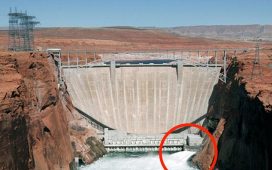Damage caused to the Great Barrier Reef by global warming has stopped corals reproducing, experts warn
- Experts measured how many adult corals survived following extreme heat stress
- They also examined how many new corals they produced to replenish the reef
- The loss of adults resulted in a crash in coral replenishment levels during 2018
Global warming is stopping the Australian great Barrier Reef from recovering from bleaching.
Research has found warmer waters stops the coral from begin able to reproduce and rebound.
Previous studies have also discovered warmer waters are responsible for bleaching corals, with the iconic Great Barrier Reef experiencing four events in 1998, 2002, and back-to-back in 2016 and 2017.
Scroll down for video

Global warming is stopping the Australian great Barrier Reef from recovering from bleaching. Research has found warmer waters stops the coral (pictured) from being able to reproduce and rebound

Previous studies have also discovered warmer waters are responsible for bleaching corals, with the iconic Great Barrier Reef experiencing four events in 1998, 2002, and back-to-back in 2016 and 2017. This graphic explains the process
‘Dead corals don’t make babies,’ said lead author Professor Terry Hughes at James Cook University (JCU) in North Queensland, Australia.
‘The number of new corals settling on the Great Barrier Reef declined by 89 per cent following the unprecedented loss of adult corals from global warming in 2016 and 2017.’
The study measured how many adult corals survived along the length of the world’s largest reef system following extreme heat stress events.
It also examined how many new corals they produced to replenish the Great Barrier Reef in 2018.
The loss of adults resulted in a crash in coral replenishment compared to levels measured in previous years before mass coral bleaching.
‘The number of coral larvae that are produced each year, and where they travel to before settling on a reef, are vital components of the resilience of the Great Barrier Reef,’ said co-author Professor Andrew Baird.
‘Our study shows that reef resilience is now severely compromised by global warming.’
The biggest decline in replenishment, a 93 per cent drop compared to previous years, occurred in the dominant branching and table coral, Acropora.
As adults these corals provide most of the habitats that support thousands of other species.
The mix of baby coral species has shifted, and that in turn will affect the future mix of adults, as a slower than normal recovery unfolds over the next decade or longer.
‘The decline in coral recruitment matches the extent of mortality of the adult brood stock in different parts of the Reef,’ added Professor Hughes.
‘Areas that lost the most corals had the greatest declines in replenishment.’
‘We expect coral recruitment will gradually recover over the next five to ten years, as surviving corals grow and more of them reach sexual maturity, assuming of course that we don’t see another mass bleaching event in the coming decade.’

The study measured how many adult corals survived along the length of the world’s largest reef system following extreme heat stress events. It also examined how many new corals they produced to replenish the Great Barrier Reef in 2018 (stock image)
So far, the Great Barrier Reef has experienced four mass bleaching events due to global warming, in 1998, 2002, and back-to-back in 2016 and 2017.
Scientists predict that the gap between pairs of coral bleaching events will continue to shrink as global warming intensifies.
‘It’s highly unlikely that we could escape a fifth or sixth event in the coming decade,’ said co-author Professor Morgan Pratchett.
‘We used to think that the Great Barrier Reef was too big to fail – until now,’ he said.
‘For example, when one part was damaged by a cyclone, the surrounding reefs provided the larvae for recovery. But now, the scale of severe damage from heat extremes in 2016 and 2017 was nearly 1500km–vastly larger than a cyclone track.’
Professor Pratchett added that the southern reefs that escaped the bleaching are still in very good condition, but they are too far away to replenish reefs further north.
‘There’s only one way to fix this problem,’ says Professor Hughes, ‘and that’s to tackle the root cause of global heating by reducing net greenhouse gas emissions to zero as quickly as possible.’















